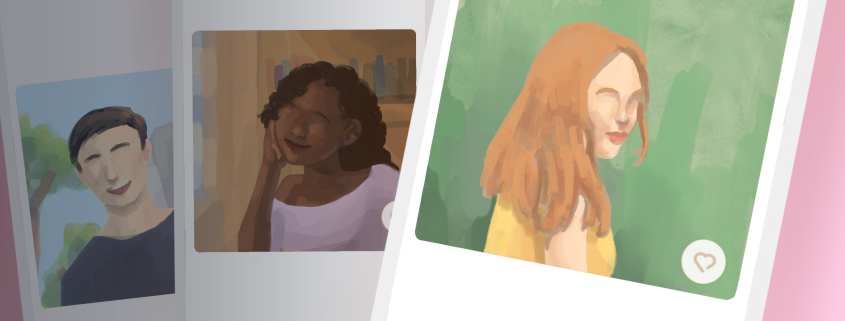It’s not a racial preference, it’s racial prejudice

We all have preferences when it comes to dating, whether it be a preference for a more athletic partner than someone more academically focused, or preferring someone with facial hair over someone without it. But there are some who have incredibly specific racial preferences for a partner, explicitly stating what races they would and would not date, based on little to no personal reasoning. This brings up the question of whether you can actually have racial preferences for dating, or if “preferences” simply mask our racial prejudice.
Not all racial preferences are inherently biased. For example, many of my first-generation immigrant friends tell me that they would prefer to date someone within their own culture and religion, as they are integral components of their lives. In addition, some groups would prefer to date someone within their own race to avoid the fetishization that often occurs within interracial relationships. However, preference quickly turns into prejudice when people make blanket statements, such as “I could never see myself dating an Asian man,” or “I’m just not attracted to Black women; I prefer white women.” These blanket statements are usually founded on subconscious racial stereotypes, such as associating South Asian men with a nerdier background, or Black women with higher levels of aggression and hypersexuality.
When you say that you just will not date someone from a certain race, you assume that there is something that unites every person of this race that makes them inherently unattractive. To say that you will not date a Black man, for example, assumes that all other things aside, you refuse to date anyone with that skin color, or assume that all Black men have some sort of common feature that you find inherently unattractive.
Additionally, saying that you would only want to date Black men or Asian women, for example, is not necessarily a compliment for the racial groups being “desired.” Historically, marginalized groups were notoriously undesired, due to commonly held beliefs of their ethnic inferiority. Therefore, to want to exclusively date someone in these historically unpalatable groups might be seen as a successful social milestone. However, it is usually a symptom of the overfetishization of a certain group.
Those who “prefer” Black men tend to associate them with overly masculine characteristics, such as a large, muscular body and the stereotype of larger genitals. A preference for Asian women is usually a result of the stereotype that Asian women are smaller, exotic and submissive. With these specific “preferences,” people of certain races are often seen as nothing more than a body, which perpetuates harmful stereotypes and violent relationships. Black women’s bodies were historically oversexualized by European colonizers, which in their minds justified their prolonged abuse and enslavement.
Stereotypes and fetishization extends beyond basic racial categories as well. Skin color, hair types and other individual features can also be tools to justify harmful stereotypes and unfair biases while dating, including the masculinization of darker skin, or the objectification of blondes. The distinction between darker-skinned Southeast Asians and lighter-skinned East Asians demonstrates how these subcategories can play a role in dating stereotypes. Southeast Asian men — from regions such as Cambodia, Laos, Vietnam and the Philippines — tend to be seen as more delinquent and toxic compared to the model minority myth projected on East Asian men. When we label these groups as toxic or inherently bad partners, it essentially becomes a self-fulfilling prophecy where groups might internalize the stereotypes, and justify and glorify toxic behaviors.
Stereotypes that are commonly associated with different races largely stem from media representation, including comments and characterizations on TV shows and movies, news sources, advertisements, the porn industry and other major media forms.
Hollywood has a large history of problematic portrayals of minority groups in films and television. For example, we often see representations of Black people as overly sexual and animalistic, which can be incredibly impactful when it comes to how they are ultimately viewed as a group in real life, leading to the objectification they can experience in relationships.
One of the largest contributors to these stereotypes, however, is the porn industry. With categories based on racial qualities, the idea that certain groups of people are meant to be objectified in different “sexual fantasies” prevails, no matter how much people try to justify the idea that its unrealisticness and fantasticality is a well-known reality among those who engage with pornographical representations of minorities.
We need to start examining our own biases when it comes to attraction to better acknowledge how our preferences can be shaped by harmful stereotypes and categorization of minorities into monolithic groups and to reduce the barriers to dating that these stereotypes uphold. Having preferences is part of being human but having those preferences at the expense of others is not.

